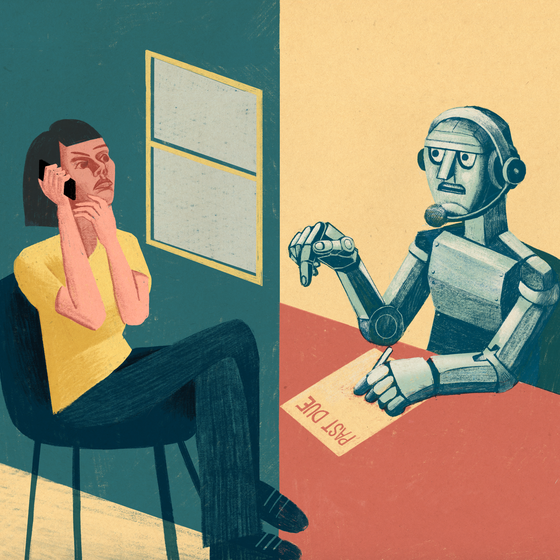Finance
Can AI Replace Human Debt Collectors?
New research co-authored by Yale SOM Professor James Choi finds that people are less likely to follow through on a commitment to repay a debt if it’s made to an AI agent. The finding hints at one area where humans may always retain an advantage over bots.

The Housing Market Still Isn’t Rational
In a New York Times op-ed, Robert J. Shiller explains why the housing market “is far less rational than even the often irrational stock market.”
The Mirage of the Financial Singularity
The financial singularity, a hypothetical state in which powerful computers direct all investment decisions and financial markets become perfect, will never become reality, according to Robert Shiller.

How Should Nonprofits Invest?
Sandra Urie ’85 of Cambridge Associates talks about helping clients find the right level of risk.

Can You Get Higher Returns from Low-Risk Stocks?
The concept of high-risk, high-return is a bedrock belief in finance, confirmed by decades of empirical data. But when Prof. Roger Ibbotson dug deeper into the data, things started to look a little different.
Coworkers Affect Retirement Savings Rates
Investment companies including Fidelity, Putnam Investments, and Voya Financial are rolling out tools that tell investors how their retirement savings compare to those of their peers. This social comparison is intended to motivate investors to increase their savings; however, new research shows that it can have the opposite effect.
Why Do Our Peers’ Financial Decisions Affect Our Own?
The choices we make—the cars we drive, the neighborhoods we live in, the gyms we join—are influenced by our social networks, the people we surround ourselves with. Our financial choices are no exception. While thousands of studies have examined peer effects, a new study co-authored by Florian Ederer, assistant professor of economics, is the first to clearly identify the two channels of social influence—social learning and social utility—that explain why our peers’ financial decisions affect our own.

Is Smart Beta Really So Smart?
Smart beta is the hot thing in investing strategies, marketed as a new way to diversify and reduce risk. But Eugene Podkaminer ’01 argues that common smart beta strategies recycle long-established methods and likely aren’t the most efficient way to achieve those goals.
Big Box Retailers Squeeze Smaller Suppliers by Borrowing from Them
Large, investment-grade companies such as Walmart and Home Depot that can easily borrow money in the capital markets often receive financing from their much smaller, credit-constrained suppliers. A new study examines the effects of this pattern of financing and finds that it squeezes small suppliers, creating a cash shortfall and causing them to cut back on capital investments.
How Do You Invest in a Changing China?
Lei Zhang ’02 has been one of the most successful investors in China during a time of unprecedented change. In a conversation with Yale’s Stephen Roach, he talked about rapid shifts in China’s business and culture, the birth of a consumer class, the Chinese innovation model, and the outmoded views of the country that remain prevalent in the West.

What’s the Right Algorithm for Quantitative Investing?
Computer-based trading dominates markets, with a majority of trading activity in major markets happening without any human intervention. Robert Litterman, a pioneer of the quantitative investing approach, spoke with Yale Insights about how ruthless competition keeps the field changing and why he believes human judgment remains an essential component of any strategy.
